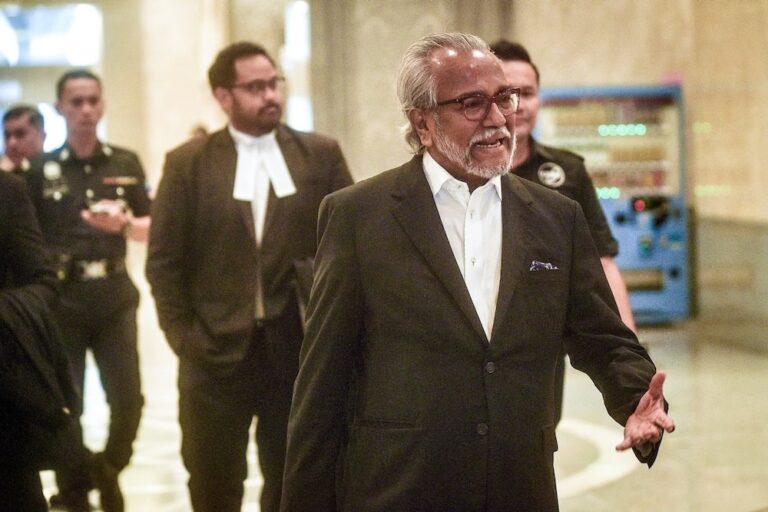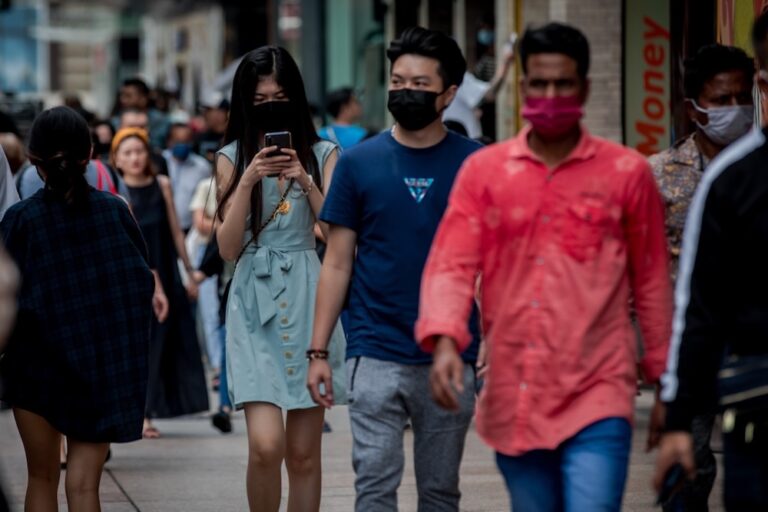(HRW/IFEX) – The following is an abridged version of a Human Rights Watch press release: Malaysia: Citizens Denied a Fair Vote Bias in Electoral Process Favors Ruling Coalition in March 8 Poll (New York, March 5, 2008) – Government restraints on expression, assembly and access to state media will deny Malaysians a fair vote in […]
(HRW/IFEX) – The following is an abridged version of a Human Rights Watch press release:
Malaysia: Citizens Denied a Fair Vote
Bias in Electoral Process Favors Ruling Coalition in March 8 Poll
(New York, March 5, 2008) – Government restraints on expression, assembly and access to state media will deny Malaysians a fair vote in the March 8 general elections, Human Rights Watch said today.
The authorities’ manipulation of the electoral process appears aimed to ensure that the ruling coalition maintains its two-thirds parliamentary majority.
“Once again, elections in Malaysia are grossly unfair to the opposition,” said Elaine Pearson, deputy Asia director at Human Rights Watch. “Malaysia’s ruling coalition is too comfortable with the status quo to allow reforms that would level the playing field.”
On March 8, Malaysians will vote for the national parliament. Since 1969, the ruling Barisan Nasional, a coalition consisting of 14 parties, has held a two-thirds majority in parliament, which enables it to amend the constitution at will. Opposition parties currently hold 9.6 percent of the seats in parliament.
Freedom of expression, association, and assembly
( . . . )
“When opposition leaders and civil society groups critical of the government try to organize rallies, they are blocked at every turn,” said Pearson. “Yet the usual excuses about unruly protesters and blocked traffic are never mentioned when the ruling coalition wants to get its supporters out on the streets.”
The government has long threatened opposition politicians with provisions of the broadly worded Sedition Act. In addition, since the draconian Printing Presses and Publications Act places the burden of proof on defendants in defamation cases, opposition parties are self-censoring for fear of being hit hard by libel suits if they critique the establishment.
Curbs on the media
Government interference in media reporting is not new to Malaysia, but has become even more contentious during election campaigning. An election observer in Malaysia told Human Rights Watch that monitoring of state television and radio had turned up no opposition candidate presence. The state media are the two most important avenues for candidates to communicate their messages to voters, particularly those in rural areas.
In late January, Bernama, the Malaysian National News Agency reported that Deputy Information Minister Ahmad Zahid Hamid conceded the lack of fairness in the state media. He said that the ministry would need to study “whether allowing opposition leaders to campaign through Radio Television Malaysia in the next general election will benefit the people.”
Freedom of the media is further hampered since all private free-to-air television channels are owned by the United Malays National Organization (UMNO), a founding member of the ruling coalition and Malaysia’s largest political party.
Because Malaysian law requires all publications to obtain permits to operate on a yearly basis, the state can easily shut down those that are critical of the government. The minister of internal security, who is currently also the prime minister, has discretion to grant, revoke or suspend any publication prejudicial to public order, morality or security, or that is likely to alarm public opinion. Newspapers such as the Tamil language daily, Makkai Osai, are self-censoring to avoid being shut down.
On February 15, the online Malaysiakini site reported that the Chinese-language Oriental Daily editor issued an election-related “guideline” to staff. The guideline suggested the newspaper should avoid placing opposition news prominently, mentioning the opposition’s campaign to block the Barisan Nasional’s goal of a two-thirds majority, or discussing any disputed issues in Chinese communities. The Oriental Daily has had difficulty renewing its license in recent years.
“The Malaysian government has ensured that state radio and TV only cover the ruling coalition and that newspapers report on the opposition at their own risk,” said Pearson.
(. . . )
Human Rights Watch urged the Malaysian government to protect the constitutionally guaranteed rights to freedom of expression and assembly for all parties. The government should not use laws to unfairly penalize opposition politicians, and it should ensure that all political parties have equal access to state media. Human Rights Watch called on national election monitors to thoroughly investigate any claims of electoral fraud and irregularities, and to provide for greater transparency by posting vote tallies outside polling stations before votes are transferred to the Election Commission.
For the full text of this press release, see:
http://www.hrw.org/english/docs/2008/03/04/malays18204.htm


